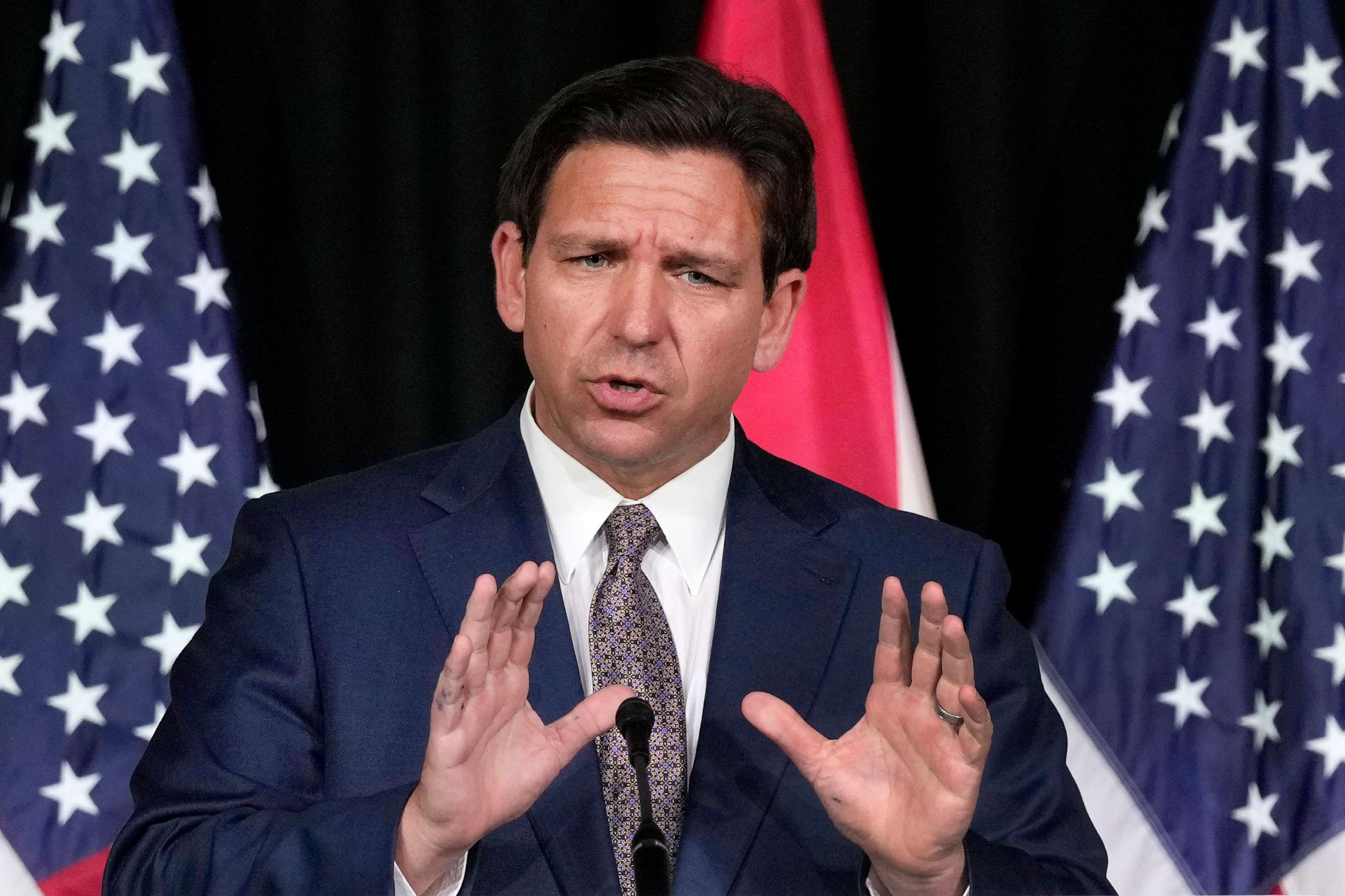Florida students walk out to protest DeSantis race education policies
Hundreds of students across Florida walked out Thursday in protest against Gov. Ron DeSantis and his policies concerning higher education.
Students walked out of their classrooms at the University of South Florida, University of Florida, Florida State University, and more in opposition of his efforts. Some high school students also joined in on the statewide walkout.
DeSantis recently announced plans to ban colleges and universities from having programs concerning diversity, equity and inclusion, as well as critical race theory and would bar funding for these programs.
Critical race theory is an academic and legal discipline that seeks to understand how systemic racism has shaped U.S. laws and how those laws have continued to impact the lives of non-white people. Diversity, equity and inclusion initiatives are intended to address inequities against historically marginalized groups that may be found within an organization.
DeSantis calls these programs "discriminatory."
HB 999, introduced on Tuesday by Rep. Alex Andrade, would help DeSantis achieve this goal by barring funds from being used for diversity, equity, and inclusion programs, as well as critical race theory-related programs, on college campuses. It would also remove diversity, equity and inclusion efforts or policies that impact hiring practices.
DeSantis also signed the so-called "Stop WOKE" Act into law in 2022, which restricts race-related curriculum and conversation in workplaces, schools and colleges. However, it has been temporarily blocked from being implemented in colleges and universities. The law is still being battled out in court.

“I think people want to see true academics and they want to get rid of some of the political window dressing that seems to accompany all this," DeSantis said at a January news conference about the effort.
Students protesting DeSantis say they value their academic freedom and liken the efforts of his administration to censorship.
"We want to take these classes and for the state to come in and say, 'Well, we might not want to allow you to have that' … At what point are college students going to be considered adults by the state of Florida?" Jonathon Chavez, president of College Democrats at USF, told ABC News.
He continued, "We want to make our own decisions and our education, how we want to better ourselves. We think it's quite silly that the state would try to restrict that."
DeSantis' office declined ABC News' requests for comment and pointed to the governor’s previous remarks.
In proposed reform for higher education, DeSantis said he also hopes to reduce the input of unions and faculty committees in hiring and retention decisions, as well as allow post-tenure reviews of faculty members by school leadership.
“The more we're centering higher education on integrity of the academics, excellence, pursuit of truth, teaching kids to think for themselves, not trying to impose an orthodoxy, you are going to see people flooding into these institutions,” DeSantis said at the January press conference.

Dream Defenders, a group of Black and brown anti-racism activists, said they are hosting "Black History teach-ins" amid the walkouts to combat the plethora of efforts from DeSantis to restrict race-related education.
“Ron DeSantis has been on a rampage. He’s banning books and flags in classrooms everywhere. He’s making sure our history isn’t getting taught. He’s getting rid of teachers, professors and faculty that look like us and support us,” said Nailah Summers, the co-executive director of the Dream Defenders, who publicly called for a statewide day of action, along with the newly formed Stand for Freedom, a coalition of student organizations spanning Florida’s college campuses. “He’s made it harder to protest, harder to vote, and harder to live in Florida.”
DeSantis' administration is also under fire by demonstrators for requiring state schools to provide information about gender-affirming care they've provided for individuals.
The request for information specifically asks that the responses “not contain personally identifiable information or protected health information.”
According to the memo received by ABC News, state universities are required to submit data relating to gender-affirming care, including “the number of encounters for sex-reassignment treatment," "the number of individuals prescribed puberty blockers," "hormones," "underwent medical procedures," the “breakdown by age” of such procedures, and more.
"At our schools, we found that transgender students [had stopped] receiving those services." said Chavez. "They don't know what that is going to be used for. They're scared that it might be used to restrict them further. And that's a very real and tangible outcome for a very simple request."
Editor's note: Portions of this article have been updated to clarify aspects of the proposed higher education institution reforms.




